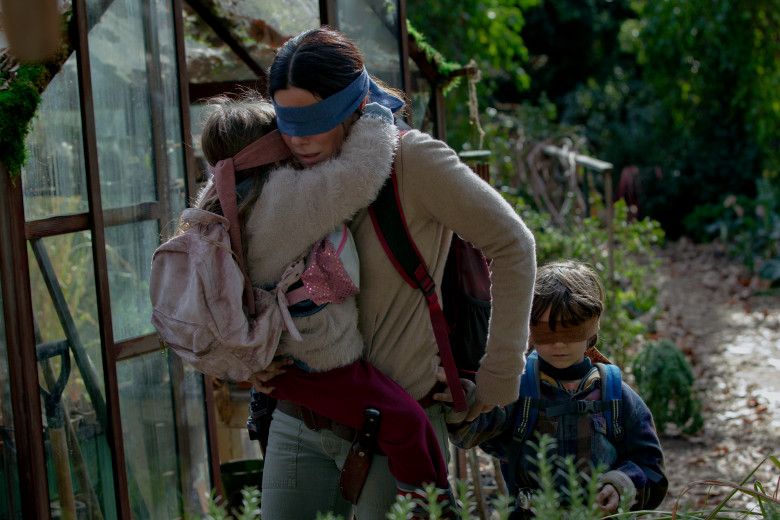Francis Ford Coppola was born in 1939. He predates the frisbee and color TV. As of right now, he is 85. And, I’ll be perfectly honest, I’m decades younger and if I had made Megalopolis, it would be my greatest achievement in life, I kid you not. The fact that the octogenarian Coppola accomplished said feat at his age is testament to a superior human being, no question. So, believe me when I say I am truly sad to conclude this film is a pile of crap. How big a pile of crap? You know those mounds of triceratops dung in Jurassic Park? Bigger. And I’d conclude the same even if I’d made the film, which I clearly do not have the skill to do.
The look of Megalopolis is undeniably brilliant. The screenplay … is not, to put it kindly. In fact, I haven’t seen a bigger discrepancy between the quality of art design and the quality of script since Toys, which is an apt comparison. We might still be talking about Toys if the film were even mediocre. The problem seems to be that Coppola was so busy visualizing his film, he forgot to write it.
And it shows.
What qualifies for plot in this work is a rivalry between the mayor of New Rome [read: New York, but we’re deliberately thinking in terms Shakespearean tragedy], Franklyn Cicero (Giancarlo Esposito), and the Chairman of Design Authority, Cesar Catilina (Adam Driver).
I have a problem right here. Why is an architect on the same level as the mayor? Seriously. Name any architect. Go ahead, name one. Any architect ever. I suppose I know a few. But I sure as Hell don’t know any in home city. And I can name the past ten mayors here. Why are these guys on the same level? These two share different visions of the city. The mayor likes it as is; the Design Authority guy wants to create “Megalopolis,” a name that’s obviously still being workshopped.
[We’re supposed to side with Mr. Megalopolis because he holds the keys to the future. And, sure, his future of recreating the Navi world in Central Park might work for about the ten seconds until you realize that putting 1.6M people in 22 square miles means that not everybody gets three BR and a park view. It just can’t happen.]
Cesar can stop time, which is pretty neat trick, add creates some wonderful visuals. And … that’s it. This power never gets used to solve or create any problem or advance the plot in any way. It’s barely a plot point. You gave a character superhuman powers and then treated them like a lesser hobby. We got more out of how Meg Ryan orders food in When Harry Met Sally … I’m not kidding.
Speaking of romances, Megalopolis kinda foresaw the rivalry wasn’t going to work as a major plot as is, so the film had mayor Cicero’s daughter Julia (Nathalie Emmanuel) fall for Cesar in a series of fairly awkward and kinda misogynistic scenes. This romance mostly made me uncomfortable.
You’ve heard the expression “acting is reacting,” yes? About halfway through Megalopolis, I realized nobody was actually acting in the film. It was all just a series of disjointed speeches. Sure, sometimes they followed a logical path of call and response, but often they didn’t and I felt very much like each actor was in their own little acting world, that the cast all took separate cabs home after a shoot. That every line of dialogue was intended to end with an exclamation point because it was a statement, not a response.
but often they didn’t and I felt very much like each actor was in their own little acting world, that the cast all took separate cabs home after a shoot. That every line of dialogue was intended to end with an exclamation point because it was a statement, not a response.
That’s not how movies work. And it saddens me that the maker of Megalopolis was somehow responsible for two of the greatest films in movie history. Those casts knew damn well how to interact. And those scripts knew the difference between dialogue and bloviation.
Megalopolis gave several prominent roles to the “Hey, he’s still alive” crowd. In addition to Coppola and Esposito, the film henchmanned the undead corpses of Dustin Hoffman, Jon Voight and Talia Shire. We’re talking about a cast in which James Remar, Kathryn Hunter, and Laurence Fishburne are considered youngsters. I’m certain every production day began by waking the cast from its collective nap so that it could go yell at teenagers to get off the set.
This feeling was not assuaged by the production giving ample time to Shia Lebeoueoueouf as Cicero’s jealous cousin. While there is good Shia and bad Shia to be had, Megalopolis found the worst Shia, asking him to overact every moment in hideous fashion. As a wannabe populist demagogue, Clodio (Shia) is mean to invoke a Trumpian feel, which might have worked were it handled by another actor.
Years from now, I have no doubt there will be the occasional film student or college professor who trots out Megalopolis for a lecture or a tirade in a series on underrated films. That student, professor, or random film buff will be mistaken, as we often are. I would simply ask the future entity to point out any well-written or well-acted scene in the entire film. Not any work of cinematography or art design. Any piece of genuine writing that one would call “quality.” I’m doubtful the entity will win that argument.
There was once a designer, Catalina
Who talked like he was in an arena
Stop time, this man could
A skill misunderstood
For he used it to bore every scene-a
Rated R, 138 Minutes
Director: Francis Ford Coppola
Writer: Francis Ford Coppola
Genre: Pictures that look good … and that’s it
Type of being most likely to enjoy this film: Members of the sycophant critic association
Type of being least likely to enjoy this film: “Come back when you have a plot. An honest-to-goodness plot”



